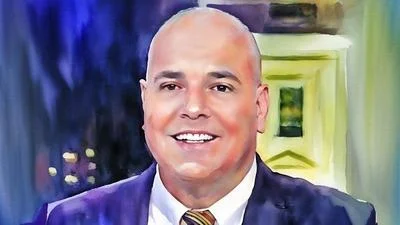James Broughel is a senior fellow at the Competitive Enterprise Institute and is currently a visiting fellow at the Hoover Institution. His work focuses on regulatory policy, particularly at the state level, and he is producing a series of reports on state permitting reform efforts.
"There's been a lot of attention in the last year or so to federal permitting reform and the possibility there could be some kind of big deal, grand bargain, so to speak, to reform the federal permitting process,” Broughel says. “[It] still remains to be seen whether that will happen."
Broughel’s focus is on identifying best practices at the state level rather than examining the interaction between federal regulations like the Clean Air Act or the Clean Water Act and their state-level implementations. He has studied states like North Carolina, where permitting processes have been adjusted but remain far from being national models.
"They have made some improvements to their State Environmental Policy Act," he says. "After [NEPA] passed in the late 60s, many states copied that and adopted some version of it at the state level. So North Carolina has a law like that, and it's been gradually adding exemptions to it."
Discussing the real-world impact of these regulations, Broughel points to the ambiguous nature of NEPA, which doesn’t mandate specific environmental actions but rather requires assessments.
"One of the interesting things about NEPA is that it doesn't have any requirements that say you have to do anything about the environment. Now, this isn't always true at the state level," he says. "NEPA actually doesn't say that. It just says you need to figure out what the environmental impacts are before you make a decision."
The broader regulatory framework often leads to legal battles. "Essentially, it just becomes this magnet for litigation," he says. "It's an opportunity for interest from environmental groups to challenge any kind of development project and say, ‘you didn't consider this impact, you didn't consider that impact.’ It's unclear what the scope of these environmental assessments needs to be. They just get longer and longer over time."
Some states, however, have taken significant steps to streamline their regulatory processes. "I recently wrote an op-ed in the Wall Street Journal, where I said that the federal government needs to copy what Idaho [has been doing]," Broughel says. "Virginia has had an initiative under Governor [Youngkin] called the Virginia Permit Transparency Initiative. This is basically an effort to put all of their permits online into a digital portal where you can track them."
Broughel sees such digital solutions as a model for better governance. "It serves as a customer service improving tool for the public to submit applications and track their applications through the process. It also serves as a management tool on the government side to try to manage all the hundreds of thousands—I think they get 400,000 or something—applications for different kinds of permits each year."
The federal government, by contrast, struggles to even quantify the problem. "The federal government is basically studying this issue. They put out a report that said it would be very complicated to try to build something like this for NEPA. But the benefits, if they could do it, and what Virginia has done and is continuing to do, is that it helps identify where the problems are," he says. "Pennsylvania did an audit like this recently, and they found something like 2,400 different permits that the state issued. Virginia now knows they receive 400,000 applications a year."
Broughel believes a full audit of federal regulations is necessary. "The Trump administration, the first time around, instituted a regulatory budget,” he says. “It was the first time this had been done at the federal level. But it wasn't comprehensive. It only applied to new regulations and specifically only new regulations that are reviewed by the Office of Management and Budget. Something like an audit of all the regulations on the books that tally up every requirement that's in place would be very useful."
He suggests that AI could play a role in such an audit but emphasizes that human oversight will still be crucial. "Mercatus Center, [where] I used to work, has a tool called Rag data that has estimates of the number of restrictions in the code,” he says. “I think AI can be helpful as a first pass, but probably it's going to take real people trying through the code and figuring out, ‘should we keep this? Should we keep that? Can we eliminate this? Can we cut this cost, cut this fee?’ That's going to take a lot of manpower."
Broughel also shares his thoughts on DOGE, or the Declaration of Government Efficiency, a movement backed by figures like Elon Musk and Vivek Ramaswamy. "I think what DOGE has going for it is [that] it's got these very high-profile charismatic leaders in the form of Elon Musk [and] Ramaswamy,” he says. “I think they're great at bringing attention to these issues that people like myself, a lot of people in the think tank community, have been talking about for a long time, but we don't have the platform they have."
Ultimately, Broughel sees the opportunity cost of excessive regulation as one of the most pressing issues. "I think an audit like this would be very useful. You can use AI for that, but in the end, it's about manpower and making real decisions,” he says. “When regulations pile up, the opportunity cost isn’t just economic—it’s about efficiency, innovation, and progress."
With a focus on state-level reforms, Broughel continues to analyze and advocate for better regulatory policies, hoping that lessons from states like Idaho and Virginia can serve as a model for the broader federal landscape.









